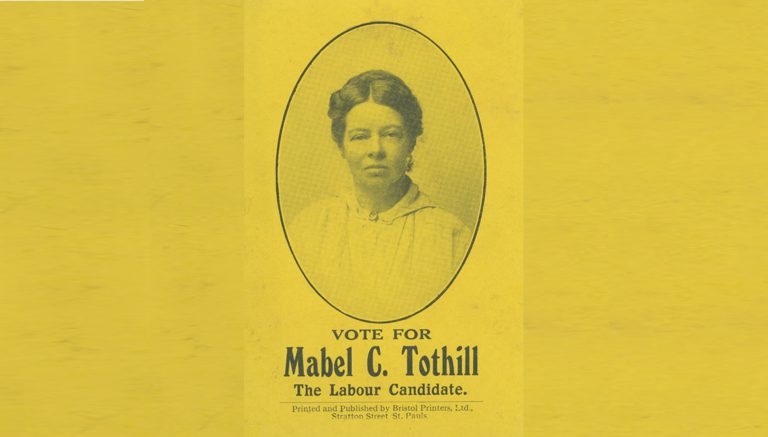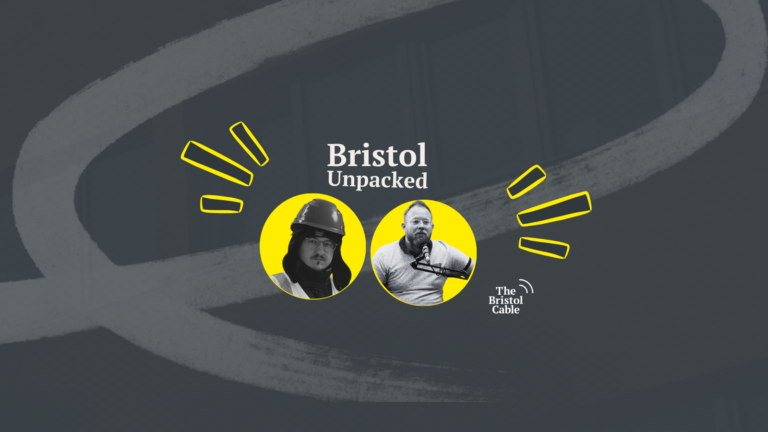From factory boss’s daughter to community organiser – meet Bristol’s first woman councillor

Mabel Tothill, the first woman to sit on Bristol City Council, was a Quaker, a socialist and an advocate for conscientious objectors.
Taking her seat in 1920, not long after she turned 50, Tothill made quite a journey – both political and geographical – from a comfortable middle-class childhood in Hull as the daughter of a factory manager.
Tothill arrived in Bristol when still in her 20s, during the 1890s. Here she joined a network of like-minded women, many of them Quakers, who were keen to promote women’s suffrage and expand educational opportunities. They also sought a systematic approach to tackling poverty, working with the local authority as its welfare responsibilities expanded.
But a turning point came in 1911 when Tothill became a resident of the Barton Hill University Settlement, an initiative of her Quaker friend Marian Pease. Pease was also daughter to a factory boss – one of the directors of Barton Hill’s Great Western Cotton Factory – and head of the University of Bristol Day Training College for Women.
While not products of it, the two women were familiar with East Bristol working-class life. The Settlement provided education and clubs for the community, trained women for social work, and was a meeting place for men and women of different classes.
A shift to socialism
We don’t know when Tothill joined the Independent Labour Party (ILP), a socialist group separate from, but affiliated to, the Labour Party itself. But it is likely her experience of Settlement work brought her into close contact with the labour movement.
By 1913, Tothill had a public role in the ILP’s East Bristol campaign promoting women’s suffrage. The previous year, the National Union of Women’s Suffrage Societies, of which she was a member, had decided to support Labour in seats – including East Bristol – where the Liberal candidate was hostile to suffrage.
Tothill soon became close to Walter Ayles, the charismatic local organiser of the ILP and the candidate for East Bristol in 1914. Ayles was not only a strong backer of women’s rights, but approached socialism through the prism of religion and pacifism. During his campaign, Tothill developed her skills as a platform speaker and propag-andist, becoming convinced that the causes of women and labour were inextricably linked – and would improve the lives of women, men and children of all classes.
After the war, the ILP put forward Tothill’s name to the Labour Party for inclusion on a list of municipal candidates. With some women finally gaining the Parliamentary vote, and many more registered as local electors, she was more convinced than ever that Labour offered the greatest hope for the achievement of a better world.
The intervening years had been tough ones. After war was declared in 1914, most Bristol ILP members demanded its speedy end via a negotiated peace – an unpopular cause even before conscription was introduced in 1916.
Ayles was imprisoned as a conscientious objector, with Tothill taking the role of secretary of the Bristol Joint Advisory Committee, supporting such men who faced tribunals or jail time, and often experienced isolation and hostility.
Conscientious objectors found Mabel’s help invaluable. She kept their plight in the public eye through leaflets and newspaper reports that gave detailed accounts of their hardships. She was also one of the ‘Watchers’ who stood outside Horfield barracks so they could be told if men were moved. She then wrote to let their families know, and visited men in prison. At the end of the war, she campaigned with others for the release of those who were still imprisoned.
Tothill’s first bid for office, for St Pauls in 1919, was unsuccessful. But a year later, when Labour’s member for Easton ward was elevated to become an alderman, she was put forward to take his place and entered the council unopposed.
She was active in proposing motions on housing, unemployment, proportional representation, and the provision of public bathrooms for both sexes. In each case, Tothill emphasised how social reforms could affect women’s lives. But her time as a councillor would last just 18 months, with a bid to defend her seat in November 1921 proving unsuccessful.
Much was made in the press of Tothill’s pacifism, though it is hard to be sure whether this contributed to her defeat. But while she remained active within the ILP – and lived on until 1964 – she would never regain public office, despite numerous attempts during the 1920s.









Report a comment. Comments are moderated according to our Comment Policy.